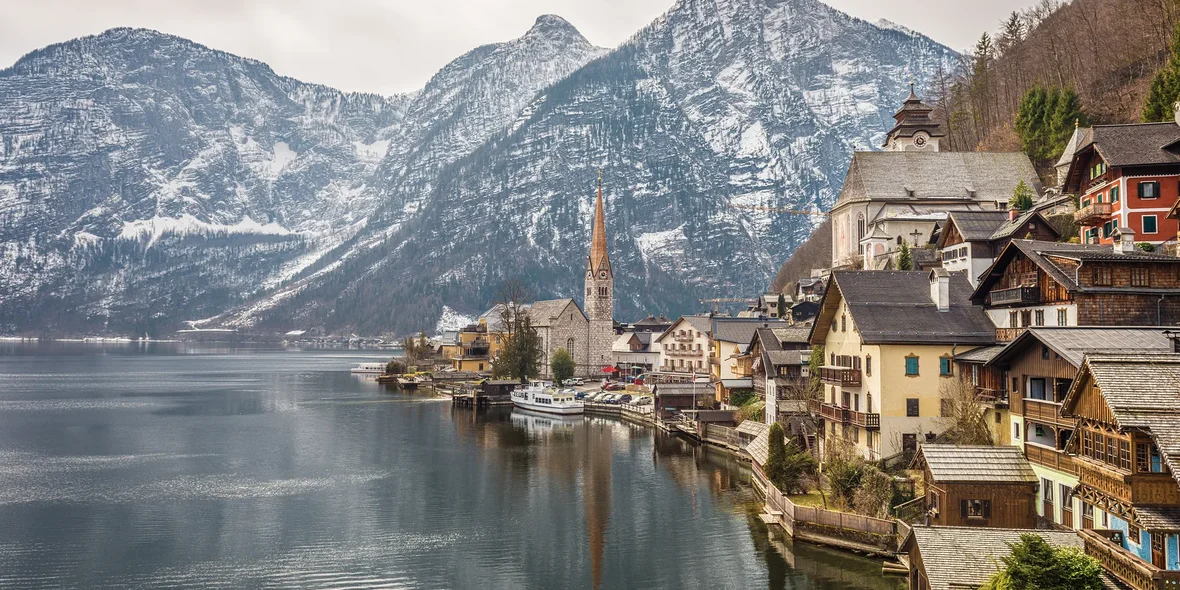
How to Buy a House or Apartment in Austria: Requirements, Process, and Cost
Austria occupies a special place in the European real estate market. Unlike a number of EU countries, where housing prices are subject to strong fluctuations and mortgage rates rise in parallel with the rise in real estate prices, the Austrian sector remains stable. Housing prices in Austria are also rising, but moderately, by 4-5% per year.
This keeps the availability of real estate at a sufficient level to attract not only private buyers but also investors. However, the process of buying properties in Austria is slightly more complicated than the EU average, mainly due to stricter rules for foreigners in certain federal states.
We have dedicated this article to precisely these nuances in order to find out how the real estate market works in Austria, what factors influence the choice of a property, and why understanding local peculiarities is critical for a successful transaction.
Who Can Buy Property in Austria?
Citizens of the European Union have the right to purchase real estate in Austria under almost the same conditions as Austrians. The only difference is that in some federal states, such as Tyrol and Vorarlberg, local authorities may require proof of intent to use the property as a primary residence. But there are exceptions to local restrictions.
For citizens of non-EU countries (for example, Russia, the USA, or China), the law requires obtaining a special permit from local authorities (Fremdenverkehrsgesetz or similar acts, depending on the region). The chance of obtaining a permit is higher for those foreigners who invest in the economy (for example, through job creation) or plan a long stay in the country. In Salzburg, Vienna, and other cities popular with tourists, permits are rarely issued in order to prevent speculation in real estate. Local authorities review the application within 3-6 months, but there are no guarantees: according to the Austrian Ministry of Economy, in 2023, about 30% of requests from non-residents were rejected.
Peculiarities of the Local Real Estate Market
The Austrian real estate market is based on residential properties. Most of the transactions are concluded in Vienna, about 40% of all housing sales in the country. The capital’s market is mainly represented by apartments in multi-apartment buildings, with an average area of 60-80 m² and a price of €5,000 to €12,000 per m². In regions like Salzburg and Tyrol, private houses and chalets are popular, focused on seasonal tourism and long-term rentals. In the Alpine zones, there are restrictions on construction, which reduces the overall supply on the market and is the basis for high prices per square meter from €3,000 to €8,000.
Investors will be interested in properties for subsequent rental, since half of the entire population of Austria rents housing, rather than buying it outright. Because of this, a situation arises where in large cities up to 60% of residents are renters. The commercial real estate segment includes offices, retail premises, and hotel properties with an average profitability of 3-4% per annum. High demand remains due to the presence of international companies and headquarters (e.g., the UN in Vienna). In tourist regions such as Innsbruck or Bad Gastein, small hotels and apartments for short-term rent are popular. However, it is worth considering that federal states such as Vorarlberg tend to give priority to local entrepreneurs.
Step-by-Step Process of Buying Property in Austria
The first stage is an assessment of financial capabilities. The Buyer needs to take into account not only the cost of the property, but also additional expenses, which is another 10-12% of taxes and fees from the price of the property. You can search for suitable real estate yourself through online platforms, but it is better to contact specialists who know the specifics of the regions. For example, in Vienna, demand exceeds supply, and in 2024, 20% of properties were sold before they were officially released on the market.
- Checking the legal purity of the property. Before buying, you need to make sure that there are no encumbrances: this can be done by obtaining an extract from the land register (Grundbuch) through a notary or lawyer. The extract will show the presence of a mortgage, seizures, or restrictions on use (for example, a ban on renting).
- Obtaining a permit (for non-residents). The application must be submitted to the land committee (Grundverkehrskommission) of the federal state where the property is located. It must be accompanied by a passport, financial guarantees, and justification for the purchase (for example, investment or personal use). EU citizens are usually exempt from this stage, but there are regional exceptions.
- Conclusion of the contract and payment. The transaction is formalized through a notary, who draws up a sales contract (Kaufvertrag), checks its compliance with the law, and certifies the signatures of the parties. At this stage, the buyer makes a deposit (usually 10% of the cost) into the notary’s escrow account. Full payment occurs after signing the contract and checking all the conditions. The average time from signing to transfer of funds is 2–4 weeks.
The final stage is the entry of the new owner’s details into the land registry by a notary after full payment and taxes. The process takes from several days to two weeks, after which the buyer receives an extract confirming the right of ownership.
How Much Does Real Estate Cost in Austria?
The cost of real estate in Austria is high due to limited land resources and increased demand from both domestic and foreign buyers. Vienna traditionally leads in housing costs per square meter, but Alpine lands such as Tyrol and Vorarlberg are not far behind.
Average property prices in Austria:
|
Region |
Average price per m2 |
Examples of property prices |
|
Vienna |
€5625 (center: €10,000–€13,000) |
Apartments: €300,000–€600,000, houses: from €500,000 |
|
Salzburg |
€5300–€6300 |
Houses/chalet: от €700,000 |
|
Tyrol |
€5000–€8000 |
Houses/chalet: from €700,000 to millions |
|
Styria (Graz) |
€2723–€3500 |
Houses: €200,000–€350,000 |
|
Burgenland |
€2436 |
Houses: €200,000–€350,000 |
|
Vorarlberg |
€6000–€7000 |
Houses: from €1,000,000 |
Additional costs:
- Transfer tax (Grunderwerbsteuer). 3.5% of the property value. For example, for an apartment worth €400,000, the tax will be €14,000.
- Registration fee (Eintragungsgebühr). 1.1% of the value, paid upon entry into the land register (Grundbuch). For the same apartment — €4400.
- Notary services. 1-2% plus 20% VAT, on average €360-€600 per transaction.
- Realtor’s commission. 3-4% plus 20% VAT, paid when using an agency.
- Annual property tax (Grundsteuer). In Austria, it is relatively low, 0.1% to 0.2% of the assessed value of the property (Einheitswert), which is usually 5–10 times lower than the market value.
- Rental income tax. Rental income is subject to income tax on a progressive scale from 0% to 55%. For example, with an annual rental income of €12,000 and the owner’s total taxable base of €40,000, the rate will be around 35%, or €4,200 in tax.
Utility costs for property maintenance:
- Utilities (Betriebskosten). Cleaning, heating, water supply, garbage disposal will cost €140—€210 per month (Vienna) for a 70 m² apartment.
- Electricity and gas. The average tariff is €0.25 per kWh for electricity and €0.06 per kWh for gas. Annual costs for a 70 m² apartment are around €600—€800, for a 150 m² house, €1,200—€1,800.
- Insurance. Banks may require insurance to approve a mortgage. Its average cost is €200—€1,000.
- Repairs and maintenance. In apartment buildings, contributions to the repair fund (Reparaturfonds) must be paid in the amount of €0.5—€1 per m² per month (€420—€840 per year for 70 m²). For private houses, the costs depend on the condition, but on average are €1,000—€2,000 per year.
In tourist regions with heavy snowfall (Tyrol, Salzburg), home maintenance is higher due to higher heating rates and additional fees for snow removal. Overall, the average annual cost of home maintenance in Austria is €2,500—€5,000 for apartments and €4,000—€8,000 for houses.
Financing Your Purchase: Mortgages and Other Options
As we have already seen, property prices in Austria are high, which raises a reasonable question about where to get financing. It is worth starting with a mortgage: Austrian banks such as Raiffeisen, Erste Bank, or Bawag offer it to both residents and foreigners, but the requirements for the latter are stricter.
Foreigners will have to pay 40-50% of the property amount as a down payment, while for EU and Austrian citizens, a mortgage loan covers 70-80% of the property value. But that’s not all: we have examined the nuances of the process in more detail in our material on mortgages in Austria.
Let’s just add that non-residents often need a residence permit or an account in an Austrian bank. According to the Österreichische Nationalbank, in 2024, the share of mortgage transactions involving foreigners was only about 12%. Banks are cautious when working with foreigners and give preference to residents.
If a mortgage is unavailable or undesirable, you can purchase real estate by creating a company in Austria (GmbH). In this case, several investors can purchase the property in shares, but in general, this scheme is most applicable to commercial real estate.
For a private individual, the installment plan option is more suitable: it can be provided by both developers and private owners. But this is a fairly rare option, and such transactions make up less than 5% of all on the market. If you manage to agree on an installment plan with a private owner, you must include its terms in the contract and have it certified by a notary, otherwise, you can lose both money and the prospects of receiving the property.
Frequently Asked Questions About Buying Property in Austria
Do you need a visa to buy real estate in Austria?
A visa is not required to purchase real estate in Austria. EU citizens can purchase real estate freely, without any visa requirements. Citizens of third countries also do not need a visa — they need permission from the local authorities (Grundverkehrskommission). However, a visa or residence permit will not be a disadvantage; on the contrary, it will increase the chances of approval of the permit and obtaining a mortgage loan, especially if the visa is long-term.
Is it possible to rent out the purchased property?
For EU citizens and residents with a residence permit, there are almost no restrictions on renting out real estate in Austria. The situation is more complicated for non-residents: if the property is classified as “secondary housing” (Zweitwohnsitz), then in Tyrol, Salzburg, and other federal states, its rental may be restricted. In Vienna, there are usually no such restrictions, but long-term rental is regulated by the Tenant Protection Act (Mietrechtsgesetz), which limits the amount of rent and the terms of termination of the contract. Short-term rentals (up to 3 months) are less regulated, but require compliance with local rules (e.g., notification to authorities).
Can I get a residence permit through purchasing real estate?
Purchasing real estate in Austria does not automatically entitle you to a residence permit (RP). The Austrian immigration system does not provide a direct link between property ownership and a residence permit. However, a purchase may be part of the process of obtaining a residence permit on other grounds. For example:
- Red-Weiß-Rot Card (for qualified specialists): owning a home proves financial stability.
- Residence permit for financially independent individuals: requires an investment in the economy (from €100,000) and an income of at least €2,000–€3,000 per month per person, and real estate serves as proof of funds.
- Business immigration: purchasing commercial real estate through an Austrian company (GmbH) with the creation of jobs increases the chances of obtaining a residence permit.
Author
I write informative articles about real estate, investments, job opportunities, taxes, etc.

















